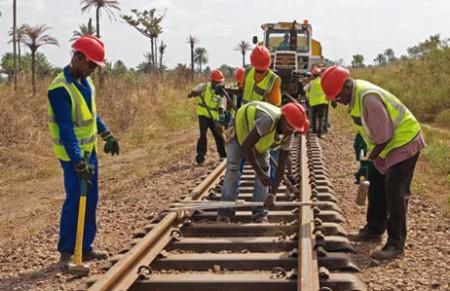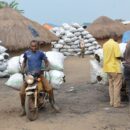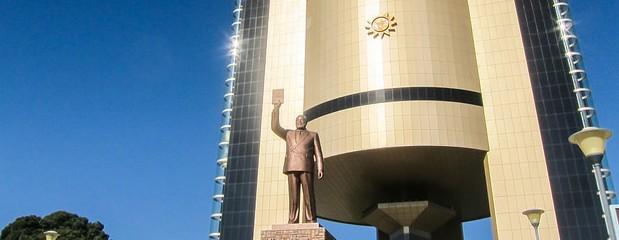Ernst and young: FDI into Africa accelerates as investor perceptions begin to shift

 · FDI projects into Africa have more than doubled from 339 in 2003 to 857 in 2011
· FDI projects into Africa have more than doubled from 339 in 2003 to 857 in 2011
· Intra-African investment has grown exponentially increasing from 27 in 2003 to 145 in 2011 – 17% of all new FDI projects on the continent last year
· 60% of respondents say perception of Africa as a business location has improved over past 3 years and three quarters say attractiveness will improve further over next 3 years
· African GDP forecast to grow between 4 and 5% pa in next decade and FDI into Africa to reach US$150b by 2015
Growing optimism and confidence among international and African investors has lead to significant inward investment into Africa over the last decade according to Ernst & Young’s second African Attractiveness Survey. The report combines an annual analysis of investment into Africa since 2003, with a survey of 505 global executives on their views about how and where investment will take place in the next decade and predicts that Africa is poised to enter the premier league of investment destinations.
There was strong growth in the number of new foreign direct investment (FDI) projects in Africa in 2011 with project numbers almost up to levels last seen in 2008. In the last decade Africa has seen an increase in inward investment from 339 new projects to the continent in 2003 to 857 in 2011 (an increase of 153%). Investment has come from across the world, with strong growth in project numbers from rapid-growth markets and developed markets alike with projects from the former increasing from 99 to 319 and developed markets projects from 240 to 538 since 2003. Intra-African investment has also been a key driver of this growth.
Among rapid growth markets, India has led the way as the fourth largest FDI investor by number of projects since 2003 with annual compound growth of 46% since 2007. China and the UAE remain prominent too, but there is high growth in investment from an increasingly diverse range of other rapid growth markets, with South Korea, Saudi Arabia and Turkey among those at the forefront.
At the same time, and despite the challenges they face, there has also been robust growth in investment into Africa from many developed markets. In the period from 2007 to 2011 UK project numbers have been up 27%, with the US and Germany also both increasing by 21%.
Mark Otty, Area Managing Partner Ernst & Young Europe, Middle East, India and Africa says, “With rapid-growth markets not only dominating investor attention and capital flows, but also playing an increasingly strategic role in defining the global economic agenda, the competition for global FDI is intensifying. African countries must position themselves appropriately in this shifting landscape to attract a greater proportion of the investment that will accelerate growth and development.”
Perception versus reality
Overall this year’s survey paints a positive picture reflecting growing confidence in Africa’s prospects. Sixty percent of survey respondents say that their perception of Africa as a place to do business has improved over the past three years. Looking forward, 73% of respondents anticipate that Africa’s attractiveness will improve over the next three years, while only 4% believe it will deteriorate.
Of those who believe that Africa’s growth prospects in the near term are significantly positive, half have a dedicated Africa strategy in place, and 92% have an active business presence on the continent.
The survey results do, however, also highlight that there is stark difference in perception between those who already have a business presence in Africa and those who do not.
This perception gap is reflected in the fact that, despite the positive African growth story, and Ernst & Young forecasting that growth in the region will remain at a robust rate of four and five percent per annum in the next decade and that FDI into Africa to reach US$150b by 2015, the continent still only attracted 5.5% of global FDI projects in 2011.
While this is up from 4.5% last year and is, in fact, the highest proportion of global FDI that Africa has ever received, reservations remain among those who have not yet invested into the continent.
Ajen Sita, Managing Partner: Africa at Ernst & Young comments “Despite high optimism, high growth and high returns, the perception gap still exists and the African continent as a whole still attracts fewer FDI projects than India and far fewer than China. There is still clearly work to be done by Africans – government and private sector alike – to better articulate and “sell” the growth story and investment opportunity for foreign investors.”
Intra-African investment leads the way
A key theme highlighted in the report is the growing confidence, self-belief and commitment by Africans to move Africa forward, reflected in the substantial growth of intra-African investment. Between 2003 and 2011, there has been 23% annual compound growth in intra-African investment into new FDI projects. This growth has been accelerating, with the growth rate up by 42% since 2007
Over a period in which the annual number of FDI projects into Africa has more than doubled – from 339 in 2003 to 857 in 2011 – intra-African investment has grown exponentially with project numbers increasing from 27 in 2003 to 145 in 2011. As a result, in 2011, intra-African investment accounted for 17% of all new FDI projects on the continent.
The growth in intra-African investment is being led by the respective regional powerhouses of Kenya, Nigeria and South Africa. All three of these African economies are ranked among the top 20 investors into the rest of the continent between 2003 and 20011, and since 2007 the growth rate in investment from Kenya, Nigeria and South Africa has been 78%, 73% and 65% respectively.
Ajen comments, “There has been a radical shift in mindset and positioning over the last decade, with Africans themselves increasingly leading from the front by providing African solutions to Africa’s challenges. Clearly work still remains to be done, but pushing ahead with key initiatives such as regional integration and investment in infrastructure will ensure that Africa remains on a sustainable growth curve.”
Moving beyond dependence on commodities
Last year’s African Attractiveness Survey highlighted the growing diversification of FDI as a key trend. This has continued this year with even greater levels of investment into less capital intensive sectors, resulting in a growing number of FDI projects in manufacturing, business services and sales, marketing and support highlighting the shift away from extractive activities on which Africa has historically been dependent.
Looking ahead
Africa remains high on the agenda of those looking to invest in foreign markets but despite the growth and progress a perception gap still remains. However, significant improvements in trade agreements, regional integration and an increased investment in infrastructure will push Africa into the top league of investment destinations.
Ajen comments, “In the midst of a global economy that is being reshaped, with growth and capital flows shifting from north to south and west to east, Africans have a unique opportunity to break the structural constraints that have marginalized the continent for decades, if not centuries.”
Ernst & Young is a global leader in assurance, tax, transaction and advisory services.






cialis coupon buy cialis online